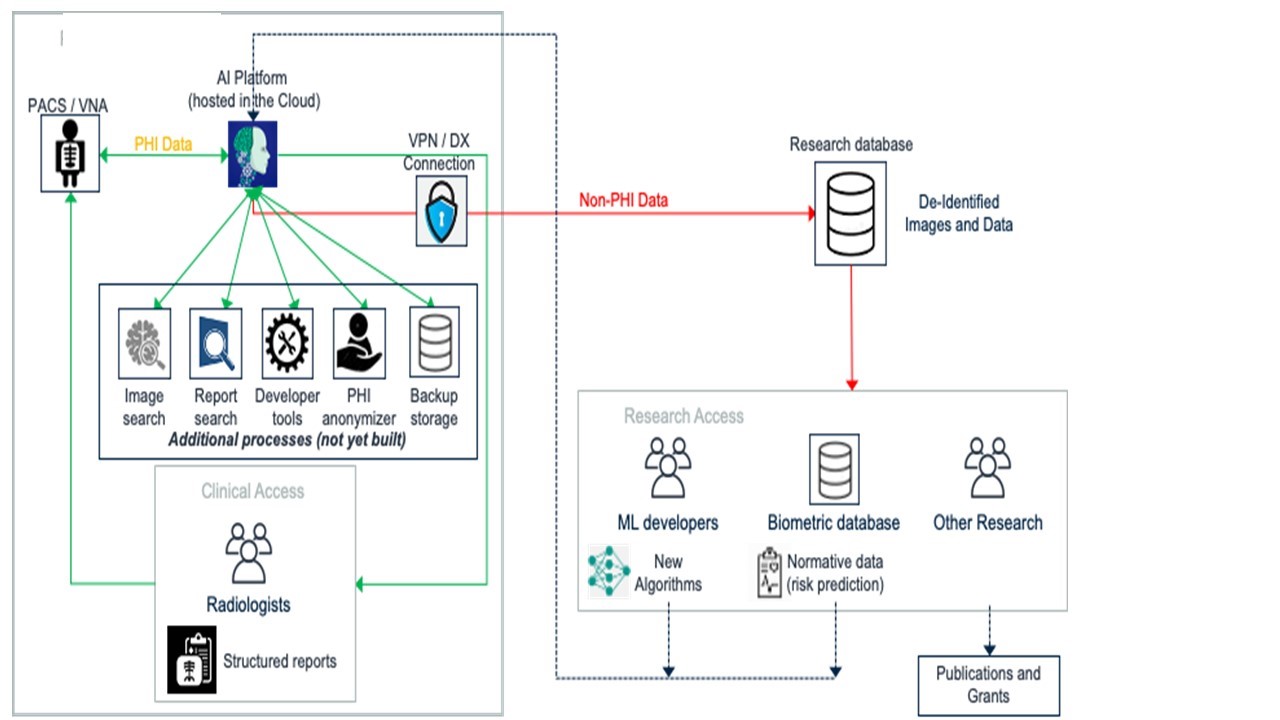A cloud-based machine learning platform accessible by clinicians for real-time image analysis supporting multiple machine learning algorithms.
Problem:
Recent developments in deep-learning algorithms have led to a rapid rise in the use of machine learning for diagnostic image analysis. This application of machine learning and artificial intelligence has the potential to save radiologists time, reduce costs, and improve diagnostic accuracy. Ideally, the AI solution should be available on a picture archiving and communication system (PACS) before a radiologist reads the study, to mitigate potential report addendums. However, most PACS systems cannot execute computationally-intensive AI algorithms and specialized hardware for on-site image processing can be cost-prohibitive.
Solution:
The inventors developed a medical image processing pipeline for real-time clinical use. Because the pipeline hosts machine learning algorithms on a cloud server, clinical PACS systems can access these algorithms for real-time image processing of newly-acquired patient data. This tool improves diagnostic accuracy and saves radiologists’ time without needing to alter existing workflows. Furthermore, the platform flexibly supports multiple machine learning algorithms, giving additional diagnostic options for clinicians.
Technology:
The invention has two primary components. The first component is a medical image analysis platform hosted on a cloud-based server that scrapes medical text and protected health information (PHI) from uploaded images. The platform stores PHI on a PHI-compliant server and sends the de-identified images to a separate cloud server to test different machine learning algorithms and generate clinical predictions. The invention's second component is custom software that smoothly integrates the machine learning predictions with relevant data fields in the radiologist’s patient report. This smooth integration provides the clinician directly with additional diagnostic information.
Advantages:
- Platform can run in parallel with current radiology workflows without any changes to existing PACS systems
- Clinicians receive near real-time predictions of diagnostic images which are integrated into patient reports
- Platform supports multiple machine learning algorithms and tools for image analysis
- No need for cost-prohibitive specialized machine learning hardware

Schematic of the cloud-based medical image analysis platform.
Stage of Development:
- Minimum Viable Product
- Pilot Project Underway
Case ID:
22-9780-tpNCS
Web Published:
5/12/2023
Patent Information:
| App Type |
Country |
Serial No. |
Patent No. |
File Date |
Issued Date |
Expire Date |